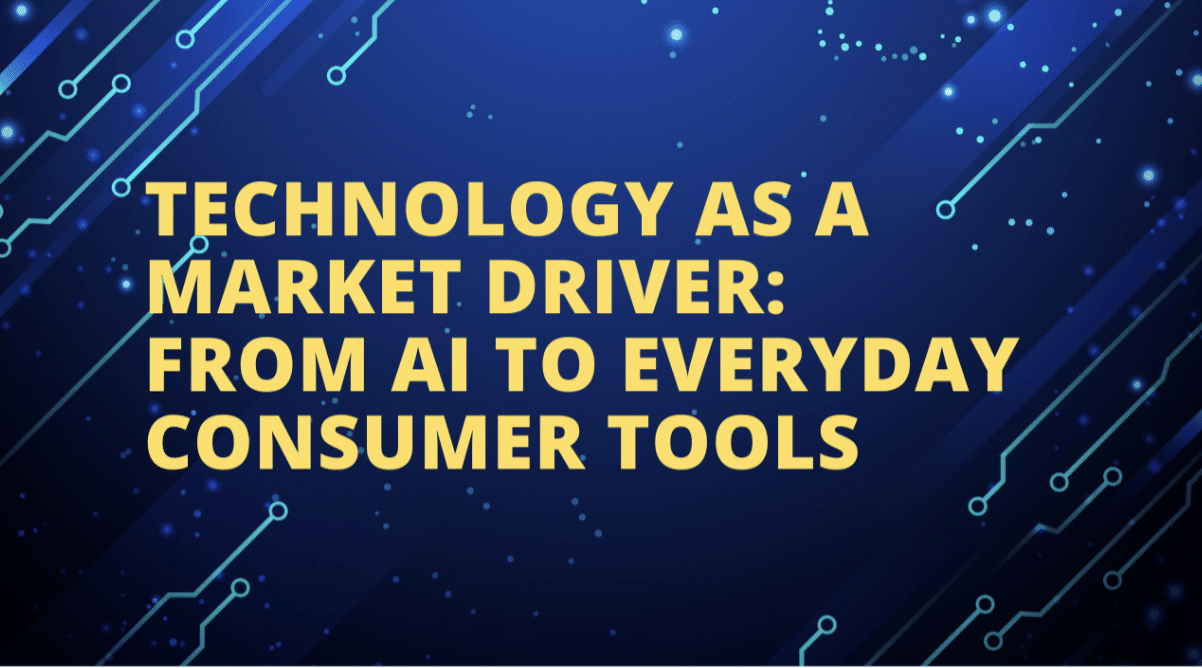
Get A Sneak Peek at my book “Your To-Die-For Life”!
Get a FREE sneak peek! Learn how to use Mortality Awareness as a wake up call to live more boldly.
 Technology continues to be the driving force behind modern markets, influencing how businesses operate and how consumers engage with products and services. From artificial intelligence shaping decision-making to mobile platforms redefining communication, the breadth of its impact cannot be overstated. Investors and professionals alike must pay attention to how these innovations reshape industries and create new opportunities.
Technology continues to be the driving force behind modern markets, influencing how businesses operate and how consumers engage with products and services. From artificial intelligence shaping decision-making to mobile platforms redefining communication, the breadth of its impact cannot be overstated. Investors and professionals alike must pay attention to how these innovations reshape industries and create new opportunities.
Amidst these broader changes, leisure platforms also reflect the same shift towards accountability and user empowerment. When people explore digital entertainment, they often look for free pokies that come with transparent information, and in this space, dedicated platforms that review slots and provide unbiased overviews have become vital in ensuring trust. This small example illustrates a wider principle: consumers increasingly value clarity and reliability in the tools they use, whether for leisure, learning, or commerce.
Artificial intelligence is no longer confined to research labs. It is woven into daily business operations, enabling organisations to analyse data, forecast outcomes, and personalise customer experiences. The influence extends across industries from financial services to health care, and its role is only expected to grow as tools become more sophisticated.
These applications show how AI functions as both a strategic asset and a competitive necessity, altering how companies create value and sustain growth.
Automation builds on the foundation of AI by transforming manual processes into streamlined systems. Robotics, machine learning, and advanced software reduce errors and improve productivity. Beyond manufacturing, automation is now prevalent in areas like finance, logistics, and even agriculture.
Comparative View of Automation’s Benefits
|
Sector |
Example of Automation |
Benefit for Market Growth |
|
Finance |
Automated trading platforms |
Faster transactions and efficiency |
|
Logistics |
Smart warehousing systems |
Reduced costs and improved speed |
|
Agriculture |
Precision farming tools |
Higher yields and resource savings |
This range demonstrates how automation is more than a cost-saving measure; it is a market driver that accelerates innovation and shapes competitive dynamics.
The rise of digital platforms has changed how consumers access services and interact with businesses. From mobile banking apps to health monitoring wearables, digital tools bring convenience and transparency. Companies are under pressure to create solutions that are intuitive, reliable, and secure.
These tools reflect a wider shift: consumers expect products that not only work efficiently but also deliver trust and accountability.
Across industries, one recurring theme stands out: transparency. Consumers demand it, regulators encourage it, and businesses increasingly embrace it as a value proposition. Whether through disclosure of supply chain practices, ethical investment frameworks, or clear pricing models, the ability to provide clarity determines long-term credibility.
|
Industry |
Example of Transparency Practice |
Impact on Consumer Confidence |
|
Finance |
Clear fee structures |
Greater trust in financial services |
|
Retail |
Ethical sourcing disclosures |
Improved brand reputation |
|
Digital leisure |
Unbiased reviews of platforms |
Strengthened user trust |
The table underlines that transparency is not a trend but a fundamental requirement in markets increasingly driven by informed consumers.
Innovation cannot flourish without boundaries that protect consumers and ensure fair play. Regulation is evolving alongside technology, from data privacy laws to fintech licensing, and striking the right balance is crucial: excessive regulation may stifle creativity, but too little can expose consumers to unnecessary risks.
Key considerations include safeguarding consumer information in an era of AI and digital platforms, preventing monopolistic practices in fast-growing tech sectors, and guaranteeing that products and services remain transparent and accountable. Together, these measures reveal that successful markets rely on both ingenuity and oversight to ensure that progress benefits all stakeholders.
For investors, technology is not just another sector but a lens through which to evaluate opportunities across the economy. Renewable energy relies on technological breakthroughs, health care depends on biotech innovation, and logistics advances are powered by digital tracking. Understanding these connections enables better risk assessment and value recognition.
Successful strategies in tech-driven markets include focusing on companies that integrate AI and automation effectively, monitoring firms that are building strong digital consumer ecosystems, and evaluating transparency practices as indicators of long-term sustainability. Taken together, these approaches encourage a forward-looking mindset and emphasise adaptability and resilience in an unpredictable global environment.
As technology continues to evolve, the line between professional and personal tools blurs. What begins as a consumer app can grow into a transformative business platform, and what starts as an entertainment service can influence broader expectations of accountability. The interplay of AI, automation, and digital platforms demonstrates that technology is not a backdrop to markets but an active driver shaping their future.
Technology’s influence extends beyond efficiency and productivity. It shapes culture, alters consumer expectations, and dictates how markets respond to challenges and opportunities. From AI’s predictive power to the convenience of digital tools, the message is clear: innovation drives growth. As investors, businesses, and consumers adapt to these shifts, transparency and trust will remain central to sustainable success.
P.S. Before you zip off to your next Internet pit stop, check out these 2 game changers below - that could dramatically upscale your life.
1. Check Out My Book On Enjoying A Well-Lived Life: It’s called "Your To Die For Life: How to Maximize Joy and Minimize Regret Before Your Time Runs Out." Think of it as your life’s manual to cranking up the volume on joy, meaning, and connection. Learn more here.
2. Life Review Therapy - What if you could get a clear picture of where you are versus where you want to be, and find out exactly why you’re not there yet? That’s what Life Review Therapy is all about.. If you’re serious about transforming your life, let’s talk. Learn more HERE.
Think about subscribing for free weekly tools here.
No SPAM, ever! Read the Privacy Policy for more information.